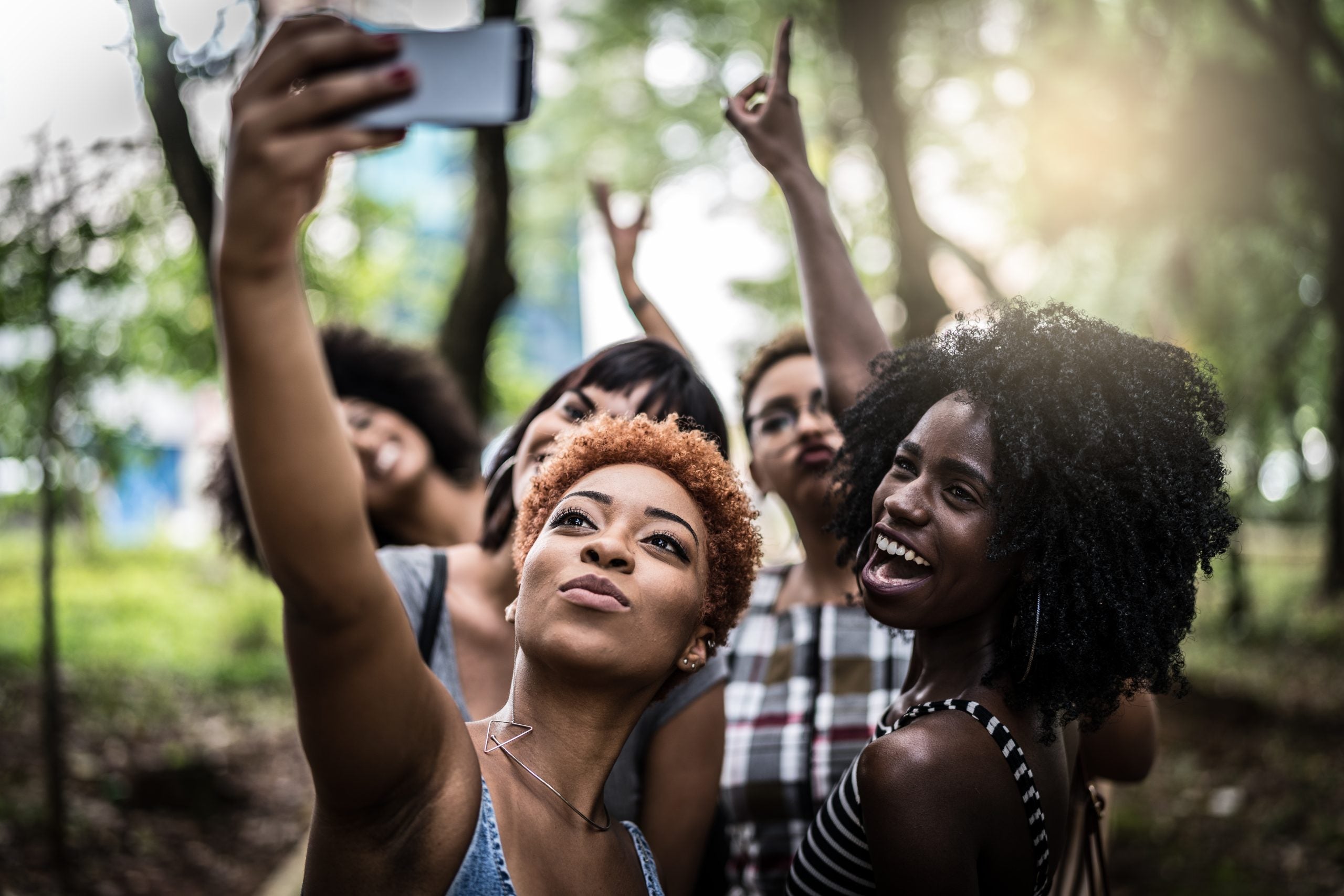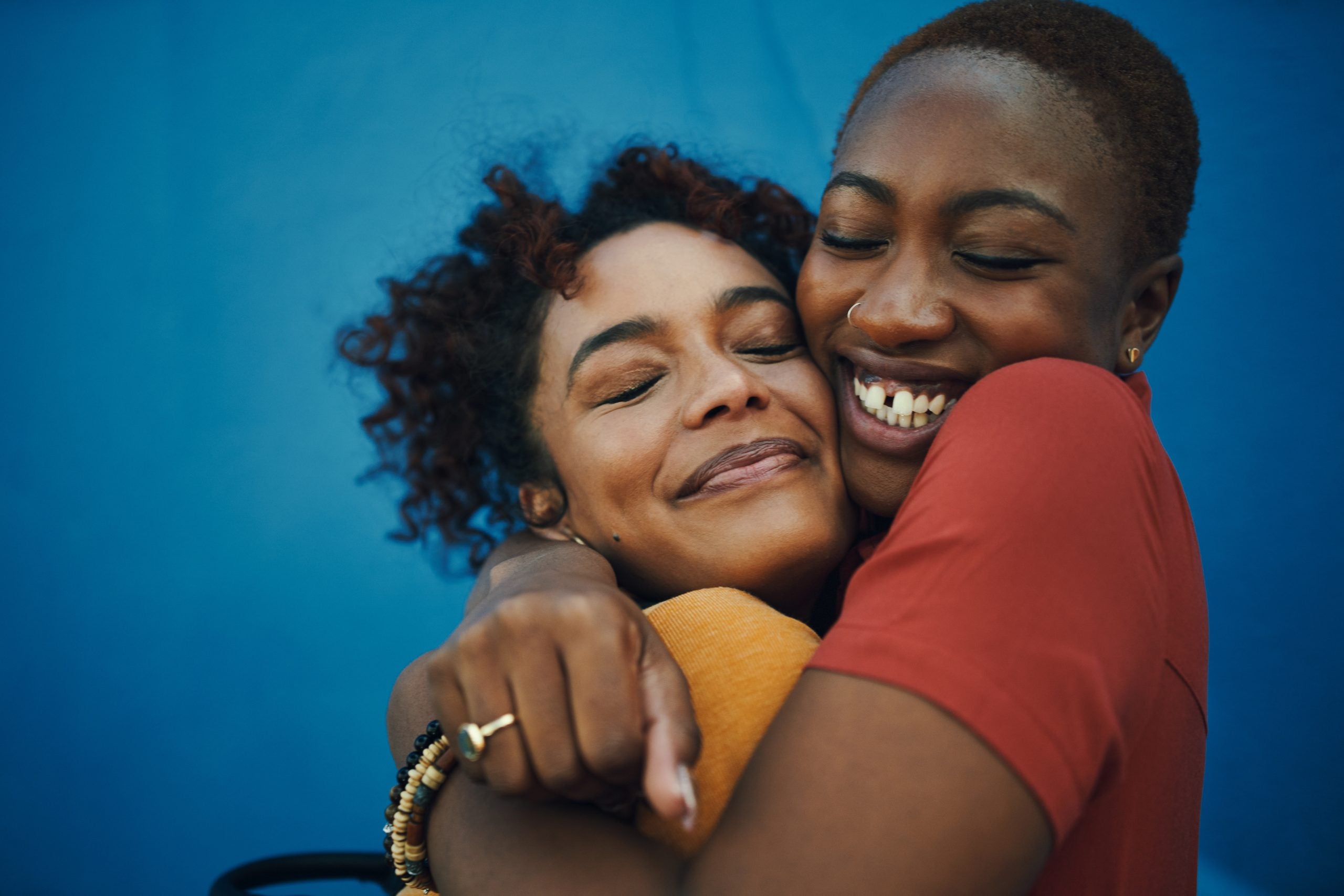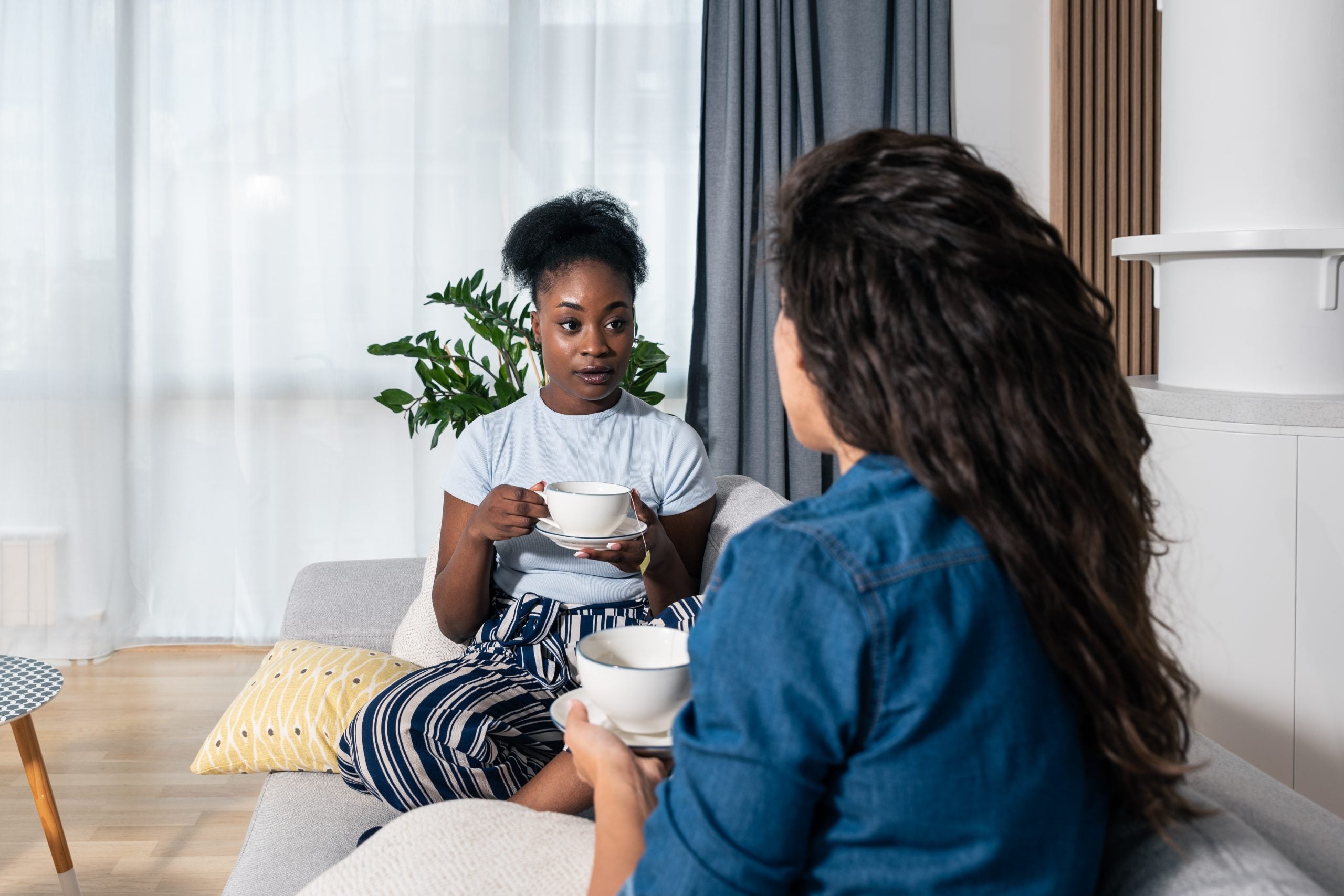
Whether a relationship was solid or already going through a shift, many of us found that our social circles—like just about every other aspect of our lives—were altered by the COVID-19 pandemic.
“What was brought to the forefront was, ‘Which of my relationships have been superficial?’” notes Brittainy Noel, a licensed therapist and confidence coach. “Many times, when we go out to brunch or we go shopping with people in our lives, we may be enjoying the experience even if we’re not actually having communications that increase intimacy. But when life gets tough, as it did during the pandemic, only certain types of friendships are able to sustain a real connection—and those are the friendships that force us to share a deeper level of vulnerability, of transparency.”
During lockdowns, meetups decreased substantially, as did basic communication—and relationships that were more challenged by social-distancing mandates are now left in a state of flux. But friendships in transition are still beneficial, says The Great Girlfriends podcast cofounder Sybil Amuti. You just have to shift your expectations. “It lightens the load for each of us when we start to take the value of what’s there and build on it, instead of thinking everyone has to be everything at all times,” she explains. “It eliminates any pressure we have imposed on friends.”
Think of the new year as a fresh start, one that presents an opportunity to hit the reset button on our friendships—whether we are hoping to repair them, create boundaries within them or move on from them altogether. ESSENCE spoke with experts and women like you to figure out how to take those next steps.
Making Amends
New Yorker Andrea Fernandes and her best friend, from -Charlotte, North Carolina, have a bond that has survived everything from their college years to living a long distance apart. Then COVID-19 happened. -Fernandes wanted to talk to her BFF about all they were going through, but her friend wasn’t giving back that energy. Fernandes reached out often to try to maintain the connection, but the favor wasn’t reciprocated.
“I spoke to her about it, but I feel like nothing really changed,” she says. “It can be draining when you feel like you’re pouring yourself out but you’re not being poured back into, by people who are close to you. I was like, ‘I’m over this. That’s not the way a best friend behaves.’” Yet despite her frustration, Fernandes didn’t really want the relationship to end.
When dealing with lulls in a friendship, it’s important to step outside of yourself. “Try to consider and understand that your friend’s world is bigger than you,” Amuti says. “You are a very important piece, but a fractional piece. I think it’s so important for us, as friends, to be able to say to each other, ‘How has this pandemic been affecting you?’ Or, ‘How has this pandemic changed the way you view friendships?’”

From there, honesty is necessary to get to a place of understanding. When Fernandes and her BFF finally talked, Fernandes discovered that her friend had been battling depression. Their long history of openness and vulnerability helped them move forward. “It just took us sitting down and talking and understanding what was going on,” she says. “We’re both going to go through a lot of challenges, and we’re going to change, and we’re going to have moments where we just need a clue about how to support each other. All it takes is some communication.”
Embracing Change
As you move into the new season and try to salvage some friendships or step away from others, be generous when discussing what both parties need. “One of the greatest questions you can ask and be asked is, ‘How can I support you?’” Amuti says. “And I think that the best thing we can offer all of our relationships is vulnerability and the assurance that we all need each other.”
Noel advises us to throw no one away. Instead, prioritize people you can go deeper with. “Ask yourself, Is this someone I still feel connected with? Can I talk to this person about my vision, my hopes, my dreams—and walk out of that interaction feeling motivated and seen and heard? When you learn to value connection over company, you naturally gravitate toward people who want to see you do well,” she says. “Those are the people who are willing to resolve conflict when it comes up, because the purpose of your relationship is so much greater.”
Choosing an Exit
Deyzire Christopher, a model, was living and working in New York City when the pandemic lockdown began. Suddenly, she found herself out of work. She returned to her native Atlanta seeking emotional support, including from her closest friend. Instead, she received judgment—about how she dressed, how she talked, even the handbags she carried. “I was already stressed, and I was drinking a lot,” she says. “And I felt like I had to meet the needs and standards of someone else—who you thought was your friend and there to uplift you.”
She did her best to defend herself, but her depression became a point of contention. “My friend wouldn’t ask me to hang out anymore,” Christopher recalls. “She let me know, ‘You embarrass me.’” For Christopher, the relationship began to be detrimental to her mental health, and she often felt as if she were under attack.

When you choose to leave an unhealthy friendship, Amuti says, the withdrawal doesn’t have to be ugly. “You can never control anyone else, but you can control the way that you move forward,” she advises. “You can control your ability to offer someone a blessing. You can control your ability to extend love and light when you see the person. And you control your gestures toward that person moving forward.” Christopher has since returned to New York City and is mentally in a better place. She’s now back at work—and has chosen to peacefully let go of that toxic relationship.
Creating Boundaries
“We’ve always had a judgment-free kind of relationship,” says 9-1-1 dispatcher Samantha Hawkins, from Powder Springs, Georgia, of her rapport with her best friend. “It’s why we connected so well.” As a Black woman and a White man in a platonic friendship, they managed to converse often and productively about hot-button political issues. That remained true until his COVID fatigue changed everything. “Initially, we both were on the same page that this is a real issue,” Hawkins recalls. “As a firefighter, he was seeing the cases up close, and I was taking the calls. But by about September 2020, he started to tire of it.”
While her good friend became more lax with COVID-19 safety precautions and skeptical about vaccines, Hawkins remained vigilant about protecting herself and her loved ones. When he invited her to his wedding, she felt safety measures wouldn’t be a priority, and she didn’t attend. From there, she set new boundaries within their friendship, choosing to no longer meet up in person.

Noel points out that it’s possible to proceed with a friendship while putting new expectations in place. The key is to be honest and stand firm. “We have to take ownership of our boundaries, without becoming insecure or afraid of how the other person is going to receive it,” she says. While months have passed since Hawkins and her pal were in each other’s presence, they still communicate by text and phone calls. Recently, he’s begun mulling over the idea of getting vaccinated—but for now, they remain friends at a distance. “We know our friendship is strong enough that we can always reach out to each other,” Hawkins says. “Though I’m not going to talk to him about certain issues, because I know where he stands, I won’t cut him off completely—because I still value our five years of friendship and memories we’ve made.”
Make the Most of Your Connections
The experts say it’s important to compartmentalize friendships, as opposed to cutting them off when they change. Here’s advice on how to have healthier, happier relationships with close, not-so-close and for-now friends
Hold People Loosely
“Give people the grace to come into your life for that moment and to fulfill whatever you both might need in that moment—while also knowing that that moment can end,” says licensed therapist Brittainy Noel. “And when it does end, stay open to gracefully allowing that moment to evolve into whatever it needs to be.”
Appreciate What Your Friend Brings
“If you both love fashion, then go to the fashion show together,” says The Great Girlfriends podcast host Sybil Amuti. “If you both love business, then talk about entrepreneurship. Find the points of intersection, and build from there.”
When Things Change, Communicate
“Allow people to grow in the ebb and flow of life—and understand that this may be a season of closeness in your connection, and it may be a season of distance,” Noel says. “By keeping the lines of communication open, you’ll be more able to navigate those seasons.”
This article originally appeared in the January/February 2022 issue of ESSENCE magazine, available on digital newsstands.